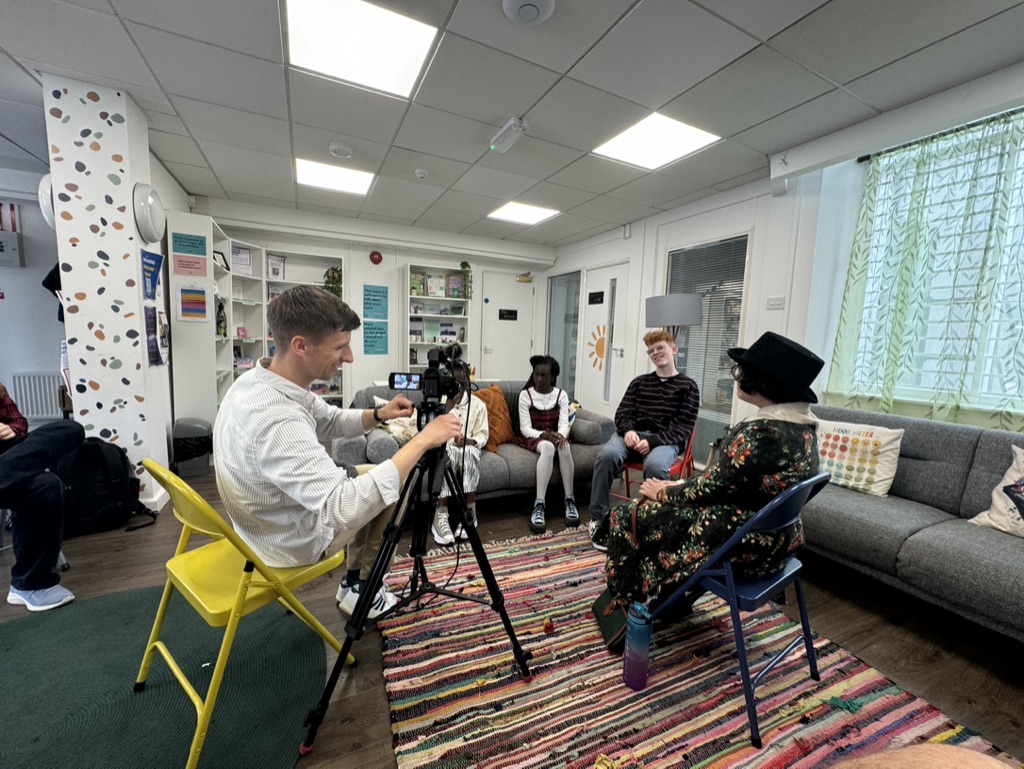Young people must have a voice in online safety debate
Today’s children and young people are the first generation to be growing up online, but decisions about the online world are often made without them.

The Online Safety Project
Working in collaboration with the NSPCC, Platfform runs a nationwide youth engagement and amplification project with the aim to discuss online experiences and safety with young people from all across Wales, in the hopes of influencing decision makers and those responsible for legislating online safety.
We hold engagement workshops with young people in schools and communities groups across the whole of Wales where they can discuss their opinions and experiences with online safety, and what they think can be changed to make it better.
Our Digital Guardians Advisory Group is made up of young people aged 11-18 from across Wales. These young people meet monthly to share their thoughts and ideas, and helps co-produce and lead on the project.
Children and young people have a right to be online – and they also have a right to be safe online. We want to ensure that young people’s voices are seen as credible and legitimate to identify, inform and influence effective solutions, decisions, and practice to help keep them safe from online harm and abuse across all four nations.
Protecting children and improving their online experience
BBC Wales reporter Ben Price, has spoken to a range of people and organisations before new rules under the Online Safety Act, including age verification on certain sites and apps, will be enforced from Friday 25th July.
Amongst those who spoke were young people from Platfform’s Digital Guardians Advisory Group.
Rufus, 15, from Llantwit Major, Vale of Glamorgan, is part of the digital guardians project, to give young people a voice in the debate around online safety.
“I think there needs to be more restrictions,” he said.
“Not in the way of restricting time because most young people believe adults that restrict time are restricting their fun and enjoyment.”
Kiishi, 13, from Swansea, said she wanted to share her experiences of being online as a young person to help improve protections for other children.
She said: “Technologies are advancing and becoming more complex and almost controlling. Some people could be brainwashed into thinking some things that are not real.”
Ada, 12, from Cardiff said: “I wanted to become a digital guardian so I can help keep children like me, older or younger, safe given the rise of things like AI to steel data, to spread misinformation because it’s so common these days to take information from things like AI that may be inaccurate which may be dangerous to our physical and mental health.
“While the internet can be bad, there are also lot of positives that help you grow and understand things.
“It can be educational but there needs to be more restrictions on the negatives like on social media and disinformation.”
Luke Rees, Platfform Service Manager for Online Safety Project, said
“We have worked with over 200 young people in schools and communities across Wales. In a safe space young people have the opportunity to share their views and experiences of online safety with decision-makers and those with responsibility for child safety online, so the change can happen where they feel it is most needed.
“Young people are the experts of their own online experiences. They can share insights into the challenges, pressures and risks they face every day when online.
“Too often decisions are made about young people without including them. At Platfform we provide young people with a space where their perspectives are heard and valued, so it can lead to more inclusive and impactful decisions, and create long-lasting solutions.”
Matthew Sowemimo, NSPCC Associate Head of Public Affairs for Child Safety Online, said:
“Young people bring unique perspectives that help us understand the true impact of online harm, enabling us to identify the support needed to keep them safe.
“That’s why it is crucial that children’s voices are included in conversations about child safety online.
“By championing their voices, we can support decision makers and those responsible for online safety to keep young people at the heart of solutions.
“But the onus for protecting children from the harm they face online, including on social media platforms, should not be put on young people themselves, but rather tech companies need to design and put in place safety features on their sites to tackle the risks.
“This week marks an important milestone in the ongoing battle to keep children safer online, with the introduction of Ofcom’s Protection of Children Codes.
“After years of drafting legislation and consultation, now is Ofcom’s moment to ensure that the Online Safety Act’s provisions are fully put into practice by technology companies.”
Head over to Platfform 4YP and connect to Platfform’s work with young people and available resources.


